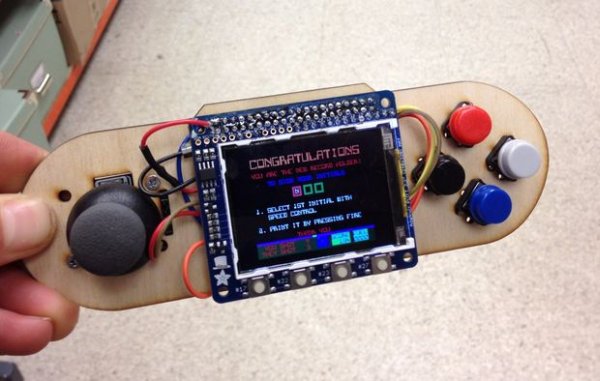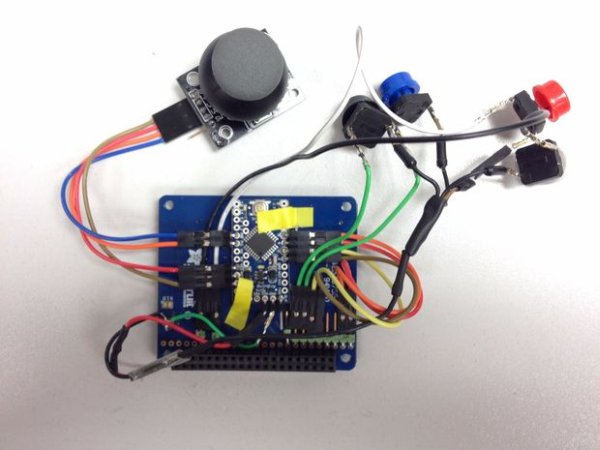Building this Portable Games Console is possibly the most fun I've had using a Raspberry Pi. And it's not just the build that's fun; I've now got a fully functioning games console, so I can play all my favourite old arcade games, on-the-go!
There's a quiet a few other projects out there where people have done similar things and I've used them for help along the way. Projects like the Adafruit Cupcade and Ben Heck's PiMAME, but these often have complicated powering solutions and can be pretty tricky to build.
The power option I've gone for is the PiJuice. It's an integrated battery module specially built for the Raspberry Pi. It makes the whole project simple and neat and means that I don't need to mess around with charging circuits and power converters.
I started off using the PiJuice when I built the Raspberry Pi Compact Camera, and that's when I realized it's potential to be used in this Portable Games Console.
I'm glad to here of any ideas you have for other great solar or portable projects. Let me know in the comments and I'll do my best to create a tutorial!
For more information on the PiJuice head over to our Kickstarter and you could be the proud owner of a Games Console Maker Kit + PiJuice:
https://www.kickstarter.com/projects/1895460425/pijuice-a-portable-project-platform-for-every-rasp.
Step 1: Parts
1 x PiJuice
1 x Micro SD and Micro SD card reader
1 x Arduino Pro Mini (5V/16MHz)
4 x Tactile Switches
10 x Female-Female jumper leads
8 x Jumper wire pin connecters
Right angle headers (set of at least 25 pins)
1 x Laser Cut Kit
PC or laptop with a linux operating system
Step 2: Download AdvMame for Raspberry Pi
The first stage is to download the games console image. The version used here is something called “cupcade”, developed by Adafruit, it utilises Shea Silverman’s AdvMAME emulator and is adapted to run smoothly with the Adafruit 2.2” TFT screen. The image is available for download from here and can be written to an SD card using your preferred method
It’s a good idea to check at this stage that everything is working properly, but first you'll need a game to play. Here is a set of legal ROMs to download straight from the MAME website. Download the desired ROM to your PC. With the SD card still in the PC copy and paste or drag and drop the the ROM from download into the ROM folder on the SD card, located in the advmame directory. The ROM should be left as a zip file.
Now everything should be set to play your game; plug the SD card into your Raspberry Pi and connect a USB keyboard. This is a good time to test out the PiJuice: It plugs into the GPIO on the Raspberry Pi as seen in the diagram. Fortunately, the PiJuice has a breakout so that all of the Raspberry Pi GPIO are still available and the screen just sits on top, like a PiJuice Sandwich.
For more detail: Raspberry Pi Portable Games Console



